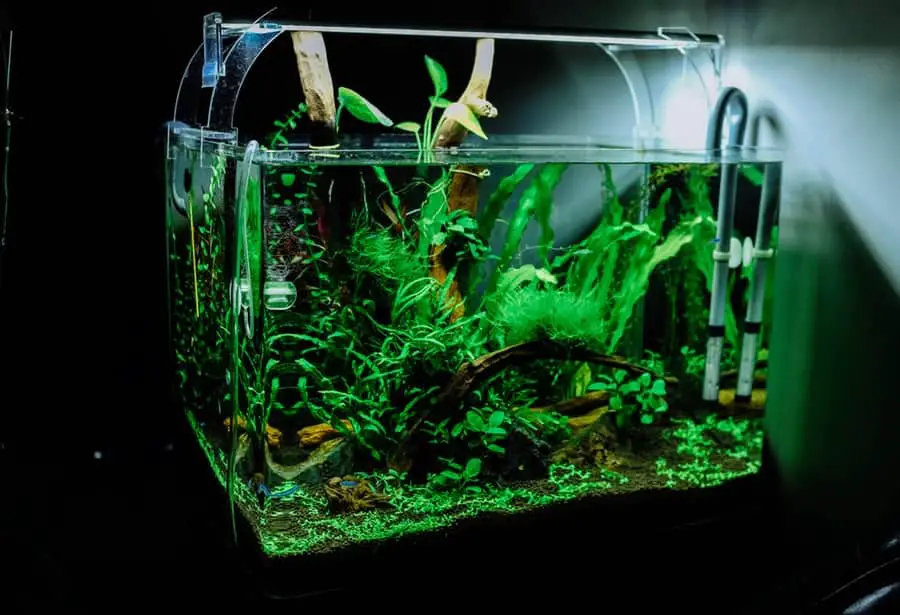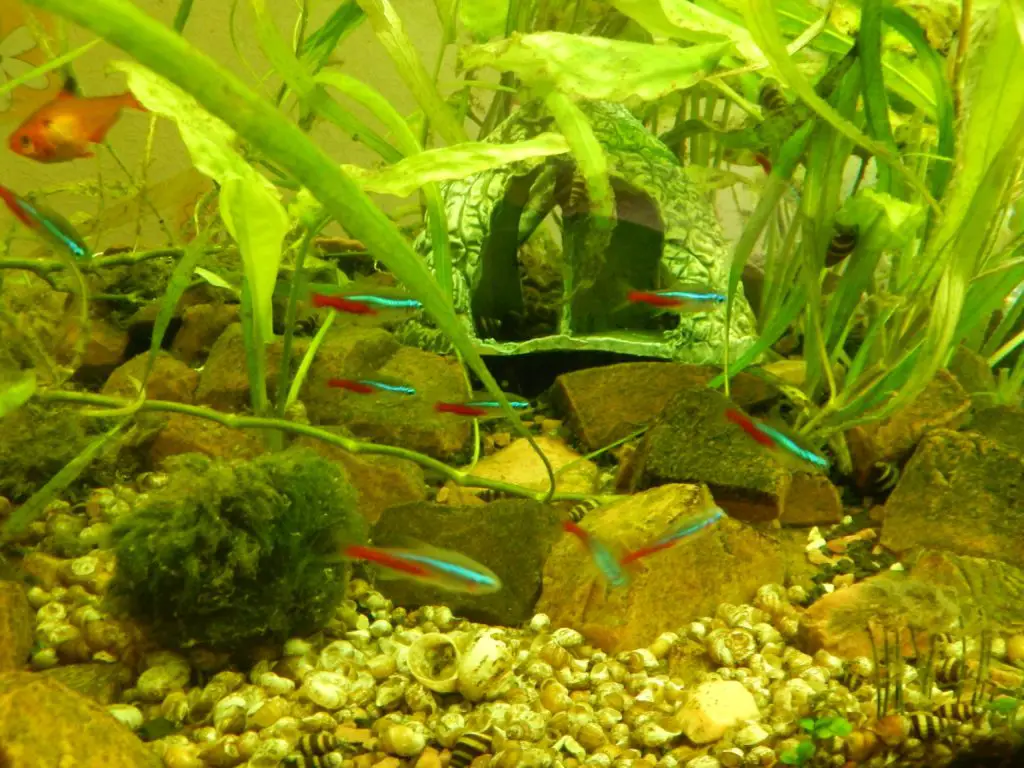Betta fish are one of the most popular aquarium pets, and their owners are always looking for the best ways to keep them healthy and happy. One question that often comes up is whether algae is good for betta fish.
Algae is a natural food source for many fish, and bettas are no exception. But is it safe for them to eat? In this article, we’ll explore the potential benefits and risks of feeding algae to your betta fish, so you can make an informed decision about their diet.

Is Algae Good for Betta Fish?
Algae is often considered as a nuisance in fish tanks. It is the green slimy residue that accumulates on the walls and decorations of aquariums. However, did you know that algae can be beneficial for betta fish? In this article, we will explore the benefits of algae for betta fish and whether it is safe for them to consume.
What is Algae?
Algae are aquatic plants that can be found in freshwater and saltwater environments. They are simple organisms that do not have roots, stems, or leaves. Algae can be microscopic or visible to the naked eye. They are capable of photosynthesis, which means they can produce their food from sunlight, water, and carbon dioxide.
Benefits of Algae for Betta Fish
Algae can provide several benefits for betta fish. One of the primary benefits is that it can serve as a natural food source for them. Algae contain essential nutrients such as protein, vitamins, and minerals that betta fish need to stay healthy. Consuming algae can also help betta fish maintain their digestive system and prevent constipation.
In addition to being a food source, algae can also serve as a natural habitat for betta fish. Betta fish are known to build their nests in algae, and it provides them with a safe space to lay their eggs. Algae can also reduce stress levels in betta fish by providing them with a natural environment that mimics their natural habitat.
Types of Algae for Betta Fish
There are several types of algae that are safe for betta fish to consume. These include Spirulina, Chlorella, and Nori. Spirulina is a blue-green algae that is rich in protein, vitamins, and minerals. Chlorella is a green algae that is high in chlorophyll and antioxidants. Nori is a red algae that is commonly used in sushi and is an excellent source of essential nutrients for betta fish.
It is important to note that not all algae are safe for betta fish. Some types of algae can be toxic and harmful to fish. It is crucial to research the type of algae before introducing it to your betta fish tank.
Conclusion
In conclusion, algae can be beneficial for betta fish if introduced in moderation. It can serve as a natural food source and habitat for them, providing essential nutrients and reducing stress levels. However, it is crucial to research the type of algae before introducing it to your betta fish tank and ensure that it is safe for consumption. With proper research and care, algae can be a valuable addition to your betta fish’s diet and environment.
Frequently Asked Questions
Are you considering adding algae to your Betta fish’s diet? Here are some commonly asked questions about whether algae is good for Betta fish.
Why should I feed my Betta fish algae?
Algae is a natural and nutritious food source for Betta fish. It contains essential vitamins and minerals that promote healthy growth and development. Adding algae to your Betta fish’s diet can also help prevent constipation and bloating.
However, it’s important to note that Betta fish are carnivorous and require a protein-rich diet. Algae should be a supplement to their main diet of high-quality Betta pellets or frozen/live food.
What types of algae can I feed my Betta fish?
There are many types of algae that are safe for Betta fish to consume, including spirulina, chlorella, and nori. These can be found in pet stores as dried flakes or pellets. Fresh or frozen algae can also be used, but make sure to wash it thoroughly before feeding it to your Betta fish.
Avoid feeding your Betta fish wild algae or algae from a natural body of water, as it may contain harmful toxins or parasites.
How often should I feed my Betta fish algae?
Algae should be fed to Betta fish in moderation, as part of a balanced diet. A good rule of thumb is to feed your Betta fish a small amount of algae once or twice a week. Overfeeding algae can lead to water quality issues and health problems for your Betta fish.
Remember to also vary your Betta fish’s diet with other types of food to ensure they are getting all the necessary nutrients they need.
Can too much algae be harmful to my Betta fish?
Feeding your Betta fish too much algae can lead to water quality issues, as excess food can cause ammonia and nitrate levels to rise in the tank. This can lead to health problems for your Betta fish, such as fin rot and bacterial infections.
Make sure to clean your Betta fish’s tank regularly and remove any uneaten food to prevent water quality issues.
What are some signs that my Betta fish is not tolerating algae well?
Some Betta fish may not tolerate algae well and may exhibit signs of digestive issues, such as bloating, constipation, or diarrhea. If you notice any of these symptoms, stop feeding your Betta fish algae and consult with a veterinarian.
It’s also important to observe your Betta fish’s behavior and appetite. If they are refusing to eat the algae or seem lethargic, it may be a sign that they are not tolerating it well.

these beautiful fish will EAT ALGAE from my BETTA TANK
In conclusion, algae can be a beneficial addition to betta fish’s diet. Algae are a great source of nutrients, vitamins, and minerals that betta fish need to maintain good health. Adding a small amount of algae to their diet can also help prevent constipation and other digestive issues.
However, it is important to note that not all types of algae are suitable for betta fish. Some types of algae can be harmful and cause health problems. It is important to do your research and choose the right type of algae for your betta fish.
Overall, incorporating algae into your betta fish’s diet can be a great way to provide them with the nutrients they need to thrive. Just be sure to choose the right type and introduce it gradually to avoid any potential health issues.
